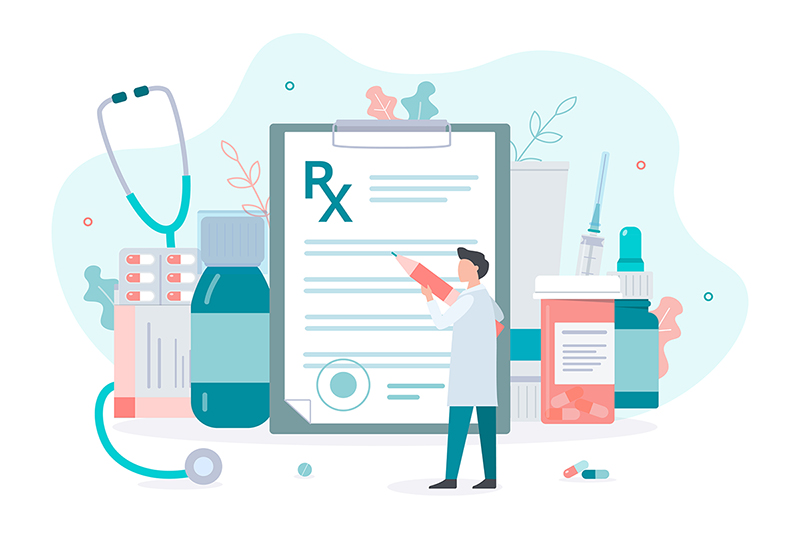Understanding the Different Types of Medications
Learn the differences between brand-name, generic, and specialty medications.

Do you know the difference between generic, brand-name, and specialty medications? Recognizing the difference between these medications is important because you can talk with your provider about which type is best suited for your health needs.
Brand-name medications
When a pharmaceutical company develops a new drug, they will apply for a patent that protects the rights to that new formulation. Patents issued by the U.S. Patent and Trademark Office on medications can last for up to 20 years, although certain factors impact the duration of a patent. The Food and Drug Administration (FDA) outlines the exclusivity periods as they apply to the drug industry. Marketing exclusivity for brand-name medications can also have an impact on the timetable for generic drug approval.
As long as a drug or formulation is covered under a patent, generic forms cannot be created and sold. As a result, newer drugs are typically only available as brand-name formulations. They are more expensive than generic drugs because their development often involves extensive clinical studies to demonstrate safety and effectiveness, which contributes to the cost.
When any applicable patent and/or exclusivity periods expire, generic versions can then be FDA approved and distributed to patients.
Generic medications
Generic medications are created with the same formulation as FDA-approved brand-name medications. They are also the same when it comes to dosage form, quality, safety, administration route, performance characteristics, and strength.
Generics have the same benefits and risks as brand-name drugs. All generic drugs undergo a rigorous review by the FDA Generic Drugs Program.
Related: Tips for a Better Trip to the Pharmacy
Specialty medications
The definition of a specialty drug continues to evolve as the pipeline of specialized medicine advances and shifts. However, to qualify as a specialty drug, a medication typically must meet at least one of the following attributes:
• Prescribed for a chronic or complex medication condition that is progressive and/or fatal and/or debilitating if left undertreated or untreated and may have no known cure
• Treats orphan or rare disease indications
• Has a high monthly cost
• Is not available at most retail pharmacies
• Requires additional patient adherence, education, and support beyond standard dispensing
• Has unique shipment and/or storage requirements
How to save on prescription drugs
Health insurance companies often include a tier-based system for prescription coverage, which means that the type of medication you are prescribed may determine your medication cost share. Most prescribing physicians allow for the substitution of a generic drug. However, if no generic substitute is available, you may be prescribed a brand-name medication.
In this case, you can talk to your provider about whether a lower-priced substitute is available. If not, many drug companies offer discounts and savings to patients who need financial assistance. Perform an online search or ask your pharmacist or your health plan to find out whether any savings may apply to your prescription.
Related: Your Pharmacy Benefits at a Glance



